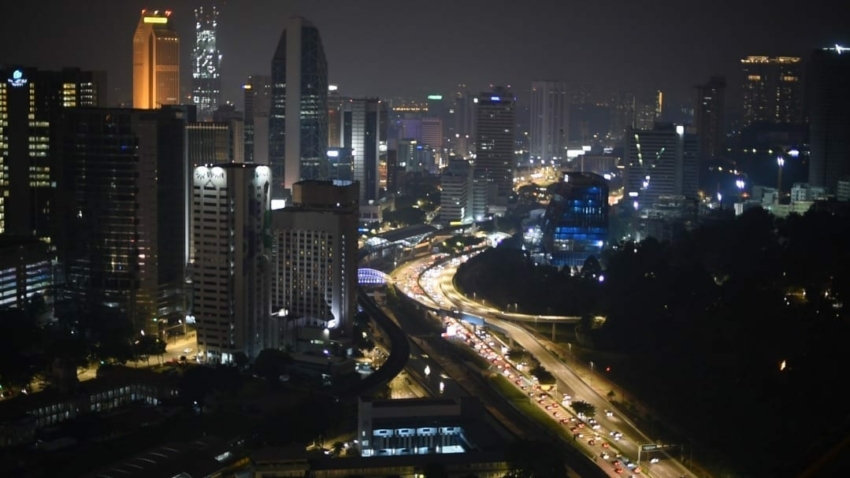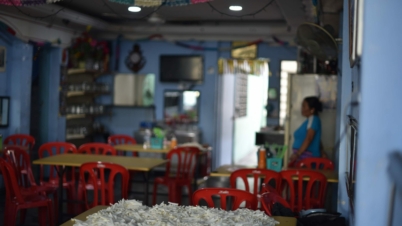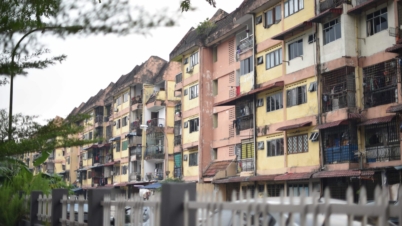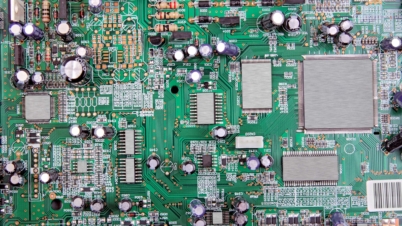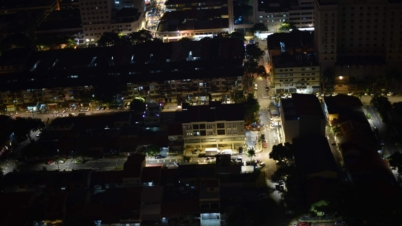Migrant workers in Malaysia producing components which may end up in some of the world’s most popular electronic devices, such as smartphones and tablets, claim they had their passports confiscated by their employers and were prevented from quitting their job to return to their home countries.
About the investigation
Danwatch has been to Malaysia to meet some of the hundreds of thousands of migrant workers that play a vital part in the country’s electronics industry.
In Malaysia, we interviewed 12 workers from three different factories and have since conducted a number of interviews with workers via video calls.
From the Possehl factory, Danwatch interviewed five workers in Malaysia.
All workers are kept anonymous for the sake of their safety. Danwatch is aware of their real identity and has proof of their employment at the factories concerned.
The investigation was supported by the EU-funded project Make ICT Fair and published in collaboration with Setem.

Danwatch has interviewed Nepalese and Indonesian workers in Malaysia who said they have worked excessive overtime and have received violent threats after they complained about arbitrary reductions in their wages.
Millions of undocumented migrants are estimated to work in Malaysia and particularly in the country’s electronics industry, where gross labour rights abuse is widespread according to the International Labour Organization (ILO) and workers’ rights groups.
Until last month, the migrants which Danwatch interviewed were all hired by a labour agent to work at a Malaysian factory which is part of the German Possehl Group. The factory supplies some of Europe’s and the US’ largest semiconductor chip makers – many of which are supplying the world’s best-known brands like Intel, Samsung and Microsoft.
Since Danwatch’s interviews, most of the workers have run away from the accommodations which were supplied by the labour agent and do not work for the agent anymore.
When Danwatch talked to them, many were desperate to leave.
“All I want is to get my passport back and to finish the contract I am working on”, Nurul, a worker from Indonesia, told Danwatch.
“But the labour agent is keeping me here longer by force”.
Who exactly did the migrants produce electronics for?
The workers that Danwatch interviewed were all employed at the labour agent JS Global.
In 2017 the Malaysian factory Possehl Electronics Malaysia which is a subsidiary of the German Possehl group entered into an agreement with JS Global and in this way, the migrants became contract workers for Possehl.
Danwatch has acquired copies of contracts that show that the Possehl factory processes products used by the major European and American chip manufacturers Infineon, ST Micro, NXP, Texas Instruments, Vishay and Diodes Inc.
These companies deliver parts of equipment to some of the best-known computer- and telephone makers such as HP, Samsung, Microsoft, Google, HTC, Philips, LG, Sony, Lenovo, Dell, Intel, Siemens and Huawei.
The world’s most popular devices
The Malaysian Possehl factory processes so-called semiconductors or computer chips – components that are found inside almost all existing electronic devices today.
Danwatch has acquired copies of contracts which show that the Possehl factory processes products used by the major European and American chip manufacturers Infineon, ST Micro, NXP, Texas Instruments, Vishay and Diodes Inc. These companies deliver parts of equipment to some of the best-known computer- and telephone makers such as Sony, HTC, HP and Google.
Risks detention and whipping
Nurul is not her real name, as Danwatch is keeping the workers’ real identities anonymous for safety reasons. When Danwatch met her, the 23-year old worker kept looking over her shoulder, despite being interviewed far from the electronics factory.
“If I ask for my passport the labour agent threatens to turn me in to the authorities”, she said.
Like the other factory workers which Danwatch interviewed, Nurul was living and working without a valid work permit in Malaysia, because she had run away from the factory she was initially employed at.
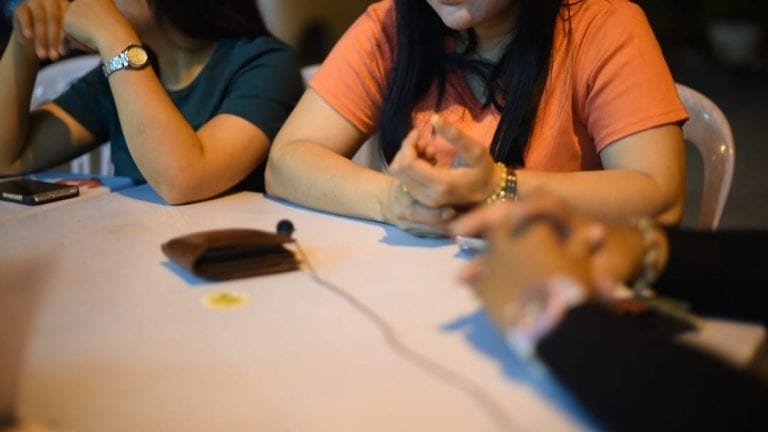
If reported to the Malaysian immigration authorities, she would not only risk being deported and blacklisted from entering Malaysia for years – she might also be subjected to well-known practices in the Malaysian judicial system such as whipping and spending months in detention, according to migrant lawyers and workers’ rights groups.
Where are the migrant workers now?
The workers that Danwatch interviewed were from Indonesia and Nepal. They were all living and working without a valid work permit in Malaysia – mostly, because they had run away from the factories they were initially employed at and which had granted them visas to Malaysia. Several of the workers claim they ran away because of abuse at the first factory.
Since Danwatch’s interviews, most workers have run away from the accommodation that was supplied by the labour agent, JS Global, and do not work for the agent anymore.
One month after Danwatch’s interviews the workers that had not already run away filed a complaint to the Possehl factory informing the plant that JS Global had not paid them any wages for the past two months. The Possehl factory made a complaint to JS global, and shortly after, JS Global decided to terminate its contract with Possehl. The workers that are still working for JS Global are therefore not working at the Possehl factory anymore.
By late June, around 15 of the workers that had left JS Global were still in Malaysia without any work permit or visa and most of them were homeless without any type of regular income.
Two months after the interview and after Nurul had worked at the factory for about two years, the labour agent finally agreed to hand her back her passport. By that time, Nurul had been struggling extra hard to get it back because her father was severely ill in Indonesia. After reacquiring the documents, she immediately travelled home.
Had to pay to work
In the corner of a street café in the Malaysian city Melaka, undocumented migrant workers from the Possehl factory presented Danwatch with payslips which show that they frequently had more than half of their monthly wages deducted for a range of reasons.
The agent company that employed the undocumented workers and sent them to the Possehl factory, JS Global, had promised that most of the money deducted was for new work permits that would let the workers stay legally in Malaysia again. But the workers said that the price they had to pay for these documents was constantly increasing and they feared they would never get anything in return from all the money spent.
Batsa, a 25-year old Nepalese worker, had around 1700 euros deducted from his salary over the past 18 months to allegedly fund a new work permit. That is the equivalent to eight months of his basic wages and is evident from his payslips.
“I even have had to pay them money at the end of the month instead of getting money”, Batsa said and explained that deductions for work permits, accommodation and other purposes sometimes exceeded the actual wages being paid when the factory could not offer a full week’s work and overtime hours.
He and another Nepalese worker told Danwatch that they wanted to return home to Nepal but stayed at the factory out of fear that they would never get anything for the major sums of money that had been deducted from their salaries. The deductions had largely prevented them from sending back remittances to their families and made it impossible to produce savings over the past few years, which is the main reason why they migrated to Malaysia to work in the first place.
What is a semiconductor?
Semiconductors are at the heart of pretty much all electronic devices being produced today, from telephones and computers to burglar alarms and smart cars, since everything that is computerized or use radio waves rely on them. They are the basis of microprocessor chips, diodes and transistors.
Most semiconductor chips today are made with silicon. This is what expressions such as the Silicon Valley and the silicon economy comes from – named after the silicon in the semiconductors that all modern electronics are ultimately based on.
Source: HowStuffWorks 2019, Science ABC, Encyclopædia Britannica
Read more
Last month Batsa decided to run away from the factory and the labour agent, and he now works in a kitchen as an undocumented migrant worker. He never received anything for all the money that had been deducted from his wages over the past years.
Inflated costs
Danwatch has contacted the labour agent which employed the workers, JS Global, to ask about the deductions. Manager of JS Global, Jamal Mohd Sheike Mohd, admitted having subtracted around 1700 euro from several workers’ wages to fund their legalisation. Mohd however claimed that he did not overcharge the workers but paid what the government-approved agency demanded for the legalisation of undocumented workers.
Each morning buses drive workers from their hostels to the factories. 8, 10, 12 or 14 hours later they drive them back to their hostels again.
Danwatch has contacted the government approved agency which JS Global has used to legalise the workers. The agency informed Danwatch that the overall expenses for legalisation is 766 euro. An older summary of the legalisation costs on the agency’s website contains a few additional charges, but the total sum still only adds up to 913 euro.
That is only 45-56 percent of the amounts that JS Global deducted from the Nepalese workers’ wages – and the workers never received any documents in return.
I even have had to pay them money at the end of the month instead of getting money.
'Batsa', undocumented factory worker
When asked about this, Jamal Mohd Sheike Mohd claimed that the workers had problems in their documents, and that the legalisation agency had demanded extra charges as a result of that.
“I told the workers that the agency was charging them extra, and they said they would pay whatever the documents cost“, Mohd said.
He emphasised that he could not guarantee that workers would receive documents for the money spent.
Observers and labour rights groups have long criticised the official Malaysian legalisation scheme in which hundreds of thousands of undocumented migrants are estimated to have paid major sums to be registered, of which only a fraction has been legalised in return. There is currently no policy in place to assist or remedy these impacted workers.
Threatened with a knife
More than two million registered migrants live and work in Malaysia according to the International Organization for Migration, and the number of undocumented migrant workers is estimated to be between two to four million.
Caught in the system
Observers and labour rights groups have long criticised the official Malaysian scheme for the legalisation of undocumented migrant workers.
Some estimates say that more than 700.000 migrants have paid major sums of money to enter the programme over the past years – but only a few more than 110.000 were successfully registered by August 2018.
In several instances, migrant workers registered under the programme have been arrested and detained by the police as ‘illegal immigrants’ even though they have paid to be legalised.
There is currently no policy in place to assist or remedy these impacted workers.
Sources: Free Malaysia Today 2019, Tenaganita 2019, The Daily Star 2019
Most undocumented workers enter Malaysia legally but, according to experts and labour rights groups, become undocumented when they for example flee their original employer because of abusive working conditions. Once considered ‘illegal’, workers are vulnerable to even graver exploitation.
“The contract company would bring some people to beat us up if we asked for our wages”, said Ram, another undocumented Nepalese worker who was also working for Possehl via the contractor JS Global.
”One time, an agent brought a knife. He was about to use it but then one of the others stopped him (…) They did such things when we asked for our wages”, the 25-year old migrant said.
It has not been possible to verify Ram’s claim. However, the workers have provided Danwatch with an audio recording that seemingly feature the labour agent threatening to turn them into the immigration authorities after they complain about their wage deductions.
Clear-cut instance of forced labour
According to Jean Allain, professor of law at Monash University in Australia and a leading legal scholar on issues of modern slavery, these examples of working conditions at the Malaysian electronics factory constitute forced labour.
The contract company would bring some people to beat us up if we asked for our wages.
'Ram', undocumented factory worker
“Based on the facts you have presented me with here, it would constitute forced labour. Workers are under the threat of a penalty in the form of blacklisting, the withholding of their passports, and the threat of the immigration authorities. These threats of penalties are all meant to compel labour”.
Regarding the money that had been deducted from the workers’ wages, Allain added: “Whatever the justifications, the agency is effectively holding them in bonded labour: they are working off the ‘debt’ of their status of becoming legalised. In this case you will see that there is a number of penalties which are being menaced, including violence, and blacklisting, and thus forced labour is evident”.

According to modern slavery expert, Gary Craig, who is emeritus professor of social justice at the Wilberforce Institute for the Study of Slavery and Emancipation at Hull University, England, the working conditions seem to be a “very clear-cut (…) prima facie instance of forced labour”.
Craig emphasized how the workers were subjected to both withholding of ID documentation, threat of denunciation to the authorities, violence or the threat of violence and illegal deduction of wages, which are four of the six original and toughest criteria defining forced labour as established by the International Labour Organization, ILO.
I worked 365 days in a year.
'Ram', undocumented factory worker
“The ILO has said in the past that where one criterion applies, one should raise concerns about forced labour; where two or more applies, this is clear evidence of forced labour”, Craig said.
A year’s work with no days off
In Malaysian law it is illegal for employers to confiscate the passports of workers.
“The passport-act is very, very clear. You cannot keep the passport of another person”, Sumitha Shaanthinni, a Malaysian lawyer specialized in migrant cases and director of the organisation Our Journey, told Danwatch.
The Possehl workers also described 14-hour workdays and only having two days off each month. Ram said he used to work in the factory’s packaging department which was a lot busier. He claims that he worked in that department for around one year without having a single day off.
“It was a peak season. Lots of products were sent for packaging (…) I worked continuously with no days off. I worked 365 days in a year”, Ram said.
When asked about this statement, Adrian Pereira, executive director of the North South Initiative, an organization that provides various types of support for migrant workers in Malaysia and their origin countries, said he frequently came across similar cases.
Confiscation of passports
The Malaysian Passport Act of 1966 states that a person cannot hold another’s passport.
Employers generally need the migrant workers’ passports for paperwork when they first arrive to Malaysia. Though it is against the law, the employers often hold on to the passports after that.
Source: Passport Act 1966, Verité 2014
“I have met many workers who did not even know the concept of a day off”, Pereira said.
Employers: may be ‘a good reason’ for passport confiscation
Forced labour, unlawful passport retention and illegal wage deductions have previously been documented in the Malaysian electronics industry.
According to a 2014 study by the American watchdog organization Verité, out of a sample of more than 400 electronics workers in Malaysia, around one third of migrant workers were forced to work against their will. 94 percent said their employer or labour agent held their passport and 71 percent reported that it was impossible or difficult to get their passports back on request.
At the labour agency association PIKAP Malaysia, which represents 150 Malaysian agencies, President Fiona Low would only go as far as to recognize that “there will be no 100 percent of the employers doing things correctly. Or 100 percent of the workers that have no problem at all. It is impossible because these are human beings”.
Low maintained that Malaysian labour laws are very strict, and she recommended workers to go and report abuse to the police.
When asked whether she considered passport confiscation a problem in Malaysia, Low responded: “It might be a problem and it might not be a problem”, adding that it depended on the particular context, if for example workers and employers “have other commitments or promises to each other that we don’t know of” or if “the workers have been borrowing money from the company”.
But if the passports are being kept from the workers against their will?
“But what is the reason they cannot get their passport? We don’t know that reason, so that’s why we cannot answer you exactly.”
No, but do you think there could be any good reason?
“There may be a good reason and there may not be a good reason”.
Denies all accusations
One month after Danwatch interviewed the Possehl workers, the workers that had not already run away from their accommodation filed a complaint to the Possehl factory informing the plant that the labour agent, JS Global, had not paid them any wages for the past two months. The Possehl factory made a complaint to JS global, and shortly thereafter, JS Global decided to terminate its contract with Possehl.
They would like me to keep the passports because they did not want them to be stolen.
Jamal Mohd Sheike Moed, manager of JS Global
Consequently, the workers still hired by JS Global are not working at the Possehl factory anymore.
By mid-June, around 14 of the workers that had left JS Global were still in Malaysia without any work permit or visa and most of them were homeless without any income.
From JS Global, manager Jamal Mohd Sheike Moed, admitted that workers received delayed payments in the beginning of this year, but he denied all the other accusations from the workers.
Moed said that he never threatened the workers but that he had taken workers to the hospital when they had gotten into violent fights with each other.
He emphasised that all workers had signed a letter saying that they would like him to keep their passports for safety reasons. Asked if anyone had ever said that they would like to keep their passports themselves, the agent said no.
According to the UN Guiding Principles on Business and Human Rights, the nation state should protect the human rights while companies should respect them – even when the state fails to do so.
All companies should investigate whether human rights are affected negatively throughout their supply chain and the company has a responsibility to act if it happens.
Source: UN Guiding Principles on Human Rights 2019
“They would like me to keep the passports because they did not want them to be stolen”, Jamal Mohd Sheike Moed added.
Looking for a solution
From the Possehl Group, Head of Corporate Communication, Lutz Nehls, said that Possehl has launched several internal enquiries after Danwatch contacted the group. He emphasised that Possehl contacted JS Global as soon as the workers made a complaint to the factory, and that the factory has since paid the contract workers their lacking wages directly.
“Based on the aforementioned facts, management of Possehl Electronics Malaysia is convinced that it has fully observed all regulations and legal requirements. However, Possehl management has instructed Possehl Electronics Malaysia to pay the justified outstanding salaries to the former contract workers concerned”, Nehls said.
Lutz Nehls did not respond to questions about what the company had done to ensure that workers at the Possehl factory had working permits and were not subject to forced labour and other abuses, or if Possehl would do anything to assist or compensate the former workers that are now homeless and without an income.
Instead he emphasised that the company is now looking into the details of the case.Workers have confirmed to Danwatch that they are currently negotiating reimbursements with Possehl for the money that was deducted from their salaries.
Infineon’s spokesperson, Diana Kaaserer, said Infineon was surprised by Danwatch’s findings which she said violated the company’s policies on workers’ rights.
“The cases described are not consistent with our self-commitment and requirements towards our supply chain. Consequently, we have addressed the concerns raised by the migrant workers to Possehl and requested comprehensive clarification”, she wrote in an email to Danwatch.
Head of Corporate External Communications in ST Micro, Alexis Breton, told Danwatch that the company had been working to help find remedies for the workers in collaboration with the electronics industry coalition, Responsible Business Alliance (RBA).
“As a consequence, March and April salaries have been paid to the impacted workers. We are still working on the remaining open issues with the support of the RBA, both short-term as well as medium- and long-term systemic actions”, Breton said.
Despite several attempts, Danwatch did not receive any comments from NXP, Texas Instruments, Diodes Inc. or Vishay.
